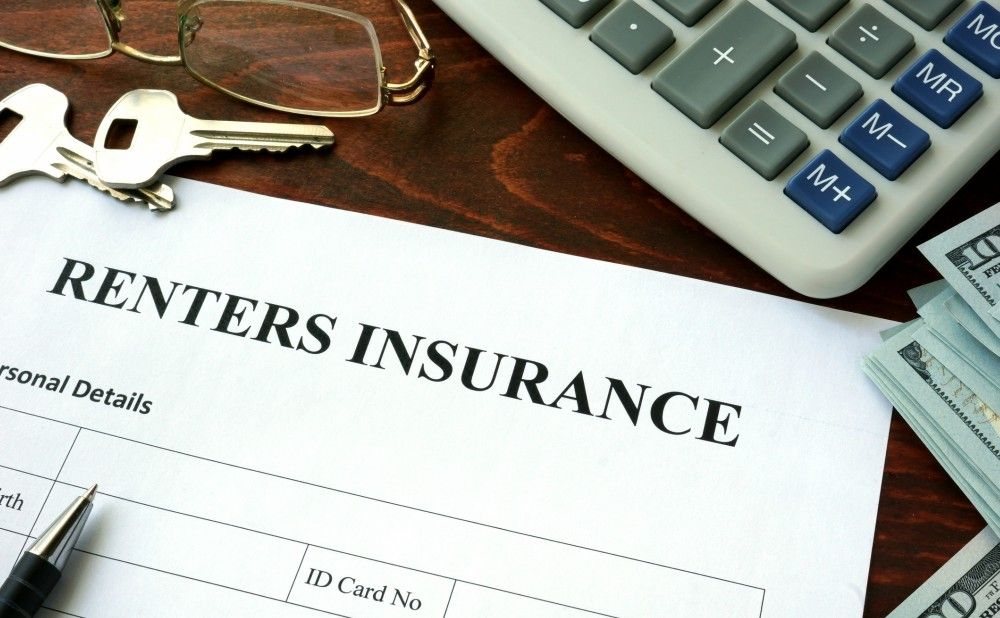
Requiring your tenants to have renters insurance is one of the best ways to protect yourself, your Abingdon rental property, and your tenants.
Unfortunately, many tenants feel that having renters insurance is not necessary.
In fact, a 2016 Insurance Information Institute poll reports that only 41% of renters have renters insurance, compared to 95% of homeowners that have a homeowners insurance policy.
Many tenants say that their belongings are not worth enough to have renters insurance. In addition, they feel that the property should already be insured by the landlord, and that renters insurance is an additional expensive that is too costly.
However, the truth is, tenants largely underestimate the value of their belongings and, thus, the value of having renters insurance.
It’s important to know that your homeowners insurance does not cover the cost of tenants’ belongings or tenant displacement.
And, despite what some people may say, a renters insurance policy is fairly inexpensive.
That’s why requiring your tenants to have a renters insurance policy in place before they move into your rental property is crucial to your success as a rental property owner.
And, it just so happens that there are ways you can help your tenants determine just how much renters insurance they need so that, should the unthinkable happen (think fire, flood, theft, or injury), they are properly covered.
Renters Insurance: A Quick Review

Renters insurance is an insurance policy that protects tenants and their personal belongings in the case of an emergency.
It also covers personal liability issues should anyone be injured while on your property, or damage something while on the premises.
Lastly, a good renters insurance policy will cover additional living expenses should your tenant become displaced due to an emergency, or uninhabitable living situation.
According to Liberty Mutual, here are some of the key things renters insurance will cover:
- Personal property such as furniture, clothing, and electronics
- Valuable items up to a specified amount
- Any personal belongings stolen from your car
- Medical bills related to any injuries that occur on the property
- Legal costs should anyone sue your tenant
- Accidental damage done to your property
- Reimbursement for housing and living costs in the case the property becomes unlivable
It is important to remember that some things will not be covered under a traditional renters insurance policy.
That’s why it is recommended your tenants talk to an insurance professional, in addition to speaking with you, before purchasing a policy to ensure they are properly covered.
Helping Your Abingdon Tenant Calculate Renters Insurance
Helping your tenants determine how much renters insurance to invest in is as simple as following these three tips.
1. Have Your Tenants Calculate the Value of Their Possessions

The first thing you are going to want to help your tenants with is the overall value of their personal belongings.
This will include every personal item they own, not just the expensive items like furniture and electronics.
Remember, renters insurance is there to replace personal belongings.
If your tenant estimates they have $5,000 worth of personal items, and lose everything to a fire, only to find out they really had upwards of $10,000 in personal belongings, your tenant is going to be in financial trouble.
That’s because any purchases that exceed the insurance payout amount will fall upon the tenant to cover.
There are several that can help your tenants determine approximately how much all of their personal items are worth.
From there, the key is to insure belongings for more than the cash or depreciated value of the items, so that there will be enough coverage to actually replace everything.
2. Recommend Liability Insurance
Liability insurance is not always included in a standard renters insurance policy.
That’s why, as a landlord, it is helpful to either require liability coverage up to at least a certain amount, or strongly encourage tenants to add that type of coverage to their policies.
In fact, if you are working with an Abingdon property management company, chances are they are going to suggest you require liability insurance in additional to renters insurance before a tenant can move in.
Liability insurance typically covers things like bodily injury, medical bills, and property damage done by your tenants or guests in your rental property. This additional coverage is usually inexpensive and worth it to add on.
The last thing you want is your tenant to become financially responsible for an injury on your property.
This kind of financial strain may cause them to be unable to pay the monthly rent, and ultimately break the lease agreement early.
This leaves you without a monthly rent collection and with a vacant property that now has to be filled.
3. Encourage Documentation

It is important to encourage your tenants to document their personal belongings via receipts and photographs.
This documentation, to be held outside of the rental property in an accessible and secure place, serves as proof that the amount of coverage owed in an insurance claim is legitimate.
Plus, taking the time to document every personal belonging helps your tenants calculate the actual value of their belongings, so the right amount of renters insurance is purchased.
For instance, you cannot claim you have a million dollars in personal belongings, and collect that amount after an emergency, without proof the belongings actually existed.
Insurance fraud is a big problem, and is something that is very carefully monitored.
It would be nice of you to remind your tenants that, in the event of an emergency that results in significant property damage, the insurance company is going to demand to see proof of their belongings before paying out on the policy.
Helping your tenants understand the importance of renters insurance should be one of your biggest priorities.
This is not only because it is helpful to your tenants, but because it is helpful to you as well.
Should an emergency, injury, or property damage occur, anything not covered by renters insurance may carry over to your homeowners insurance.
By requiring your Abingdon tenants to have renters insurance, you protect your bottom line and save yourself from higher premiums should something terrible happen to your property or the people inside of it.
If you own rental property in Abingdon or anywhere in Harford County and want help with structuring a lease agreement to require renters insurance, contact Bay Management Group now.
We have years of experience in the rental property industry, and know that renters insurance is necessary when it comes to placing new tenants in your investment property. We can draft lease agreements that require renters insurance, help your tenants determine how much they should be insured for, and help you maintain your bottom line should anything happen to your rental.
